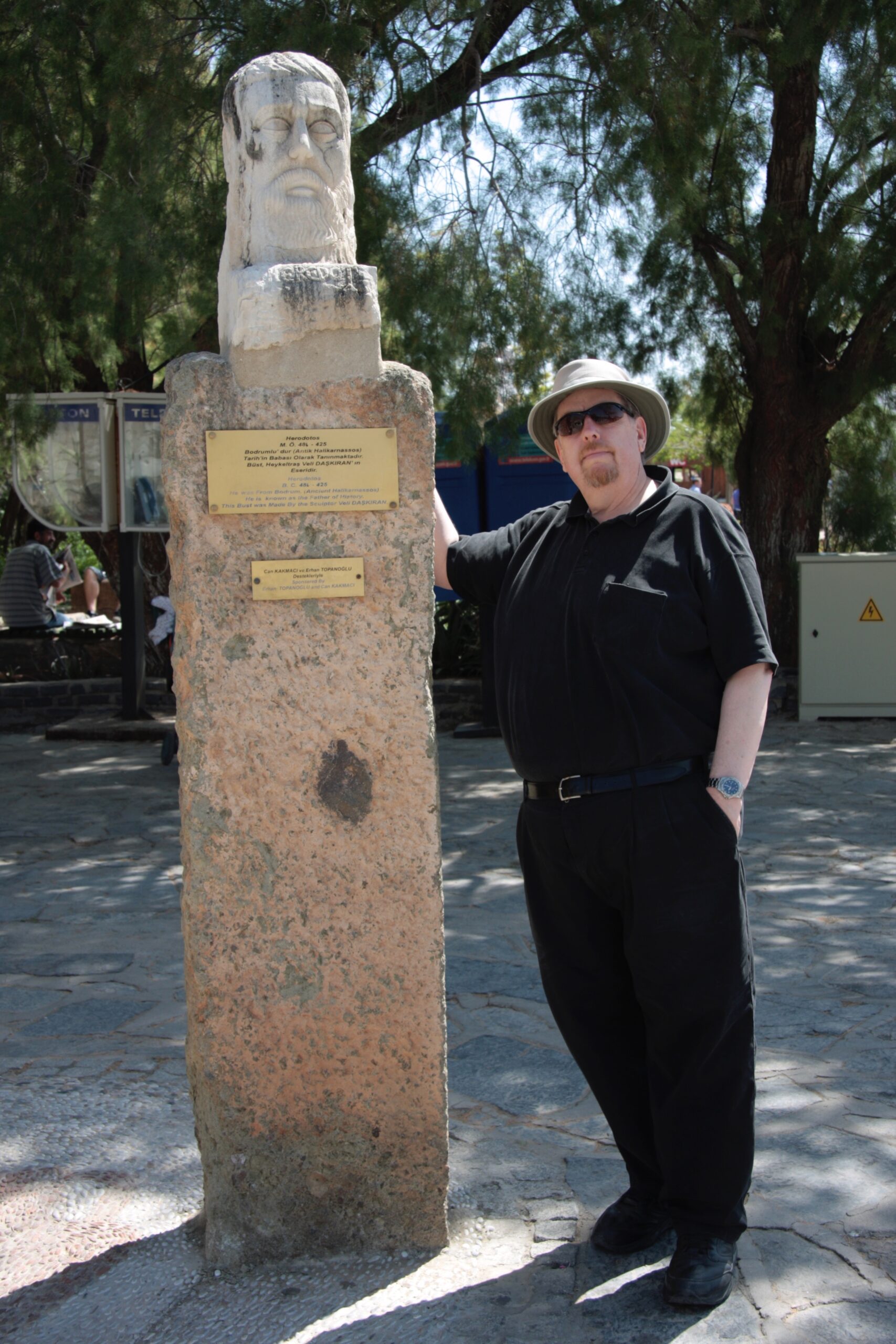Some background to Herodotus and his Persian Wars

Herodotus (c. 484 – c. 425 BC) was born in Halicarnassus, an Ionian city occupied by the Persian empire, at the eastern periphery of the Greek world where Greeks and foreigners met regularly, a place where a cosmopolitan attitude would have been natural. [But remember that the Greek word for foreigner was “barbarian”.] Herodotus came from a wealthy family, influential in politics and the arts — an uncle had written an epic poem called Ioniks on the foundation of the Ionian cities. Though the Persians were the city’s overlords, they had permitted a local tyrant to rule directly — this was the remarkable woman Artemisia (who appears played by Eva Green in the execrable movie 300 Rise of an Empire). Herodotus participated in an attempted coup against her and after its failure he was exiled. He returned later and, probably with the help of Athens, overthrew a tyranny led by Artemesia’s grandson but he found that he was unpopular with the citizenry and left his native city again. When the call when out for colonists to settle at Thurii in southern Italy in 443 BC, Herodotus volunteered along with the famous sophist Protagoras. He may well have died here, probably around the year 425 BC.
Exile was a common feature of life for prominent Greeks. Every city at any given time had citizens banished for a fixed time or forever, many of them scheming to return and work the same fate for their enemies. Athens institutionalized exile with its practice of ostracism and several of the heroic figures in Herodotus will be exiled by their city. Most such exiles however did not leave Greece but Herodotus seems to have been different in this regard. During his life in exile he made extensive travels through the Mediterranean world where he did his “researches” for his Persian Wars. We know he went to Egypt and made a trip to Tyre and Babylon, then all in the Persian empire; he voyaged into the Black Sea and into what is now the Ukraine and Russia, going 40 days journey up the Dnieper River. Ionia, Greece and southern Italy were all part of the Hellenic world which he knew personally. He does not seem to have spoken any other language than Greek (which may account for his credulity in some instances) and does not seem to have been an assiduous note-taker during his travels…”I seem to remember, etc.”
His book appears to have been written over a long period of time and amended more than once before its publication, which occurred sometime between 430-424 BC. It is a loosely-knit book with numerous digressions (deliberate and enjoyable). Such conventions were from Homer, on whom his audiences were brought up. It also points to the fact that it was meant to be read aloud; some sections are clearly meant for a stand-alone lecture — one of the ways that Herodotus earned his living during his exile. Silent reading was still relatively rare in any work longer than a letter. The Greeks and Romans reacted more responsively and immediately to the spoken word than we do. There is one source that claims that the Athenians voted Herodotus the sum of ten talents after hearing a part of his work. Now Persian Wars is a very pro-Athenian piece at a time when Athens was not popular but ten talents was an unbelievable fortune — 570 pounds of silver? We do know too that Thebes told him to take a hike and refused to let him speak to their young men but that Spartans were great fans of history — they hated thinking but they loved tales of war, politics and conflict.
The picture above shows a handsome modern historian clad in the Tilley hat that is the unmistakeable sign of a Canadian in foreign climes. He stands beside the bust of Herodotus in his home town, now known as Bodrum in southwestern Turkey. It’s a rather gaudy tourist site these days, most visitors coming for the gorgeous sea and the night clubs, but it contains a few memorials to Herodotus, some fragments of the Mausoleum that was once one of the Seven Wonders, and a splendid crusader castle.